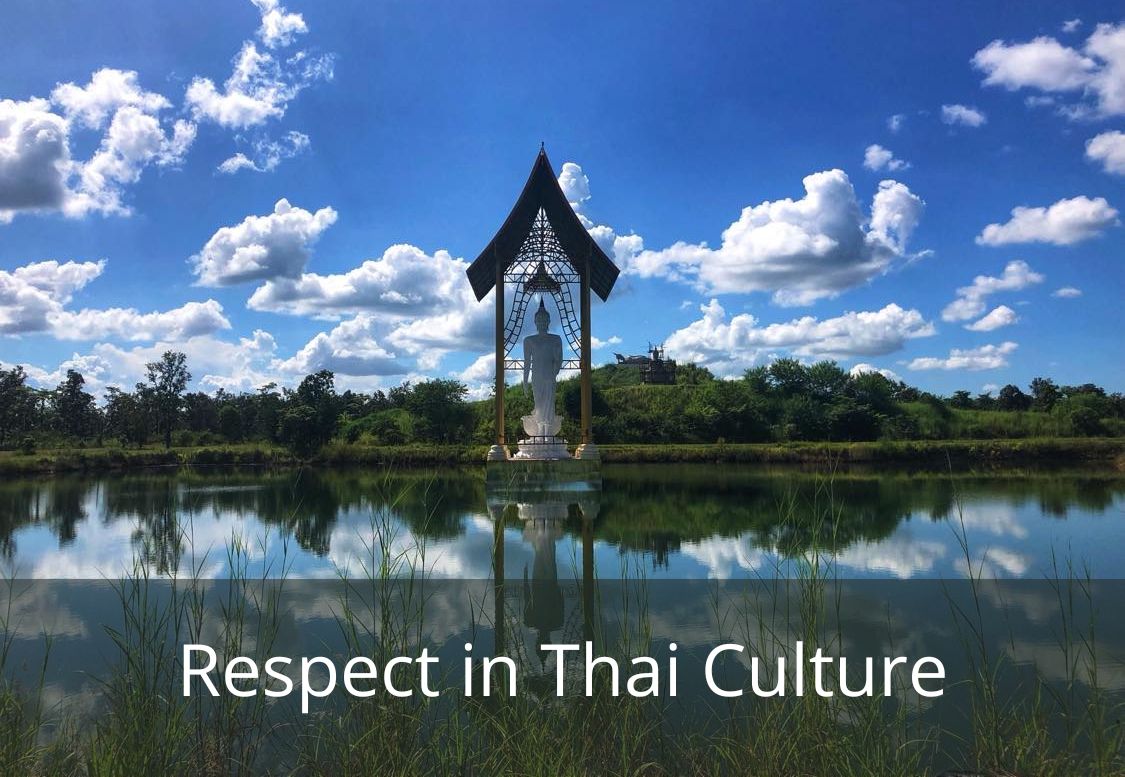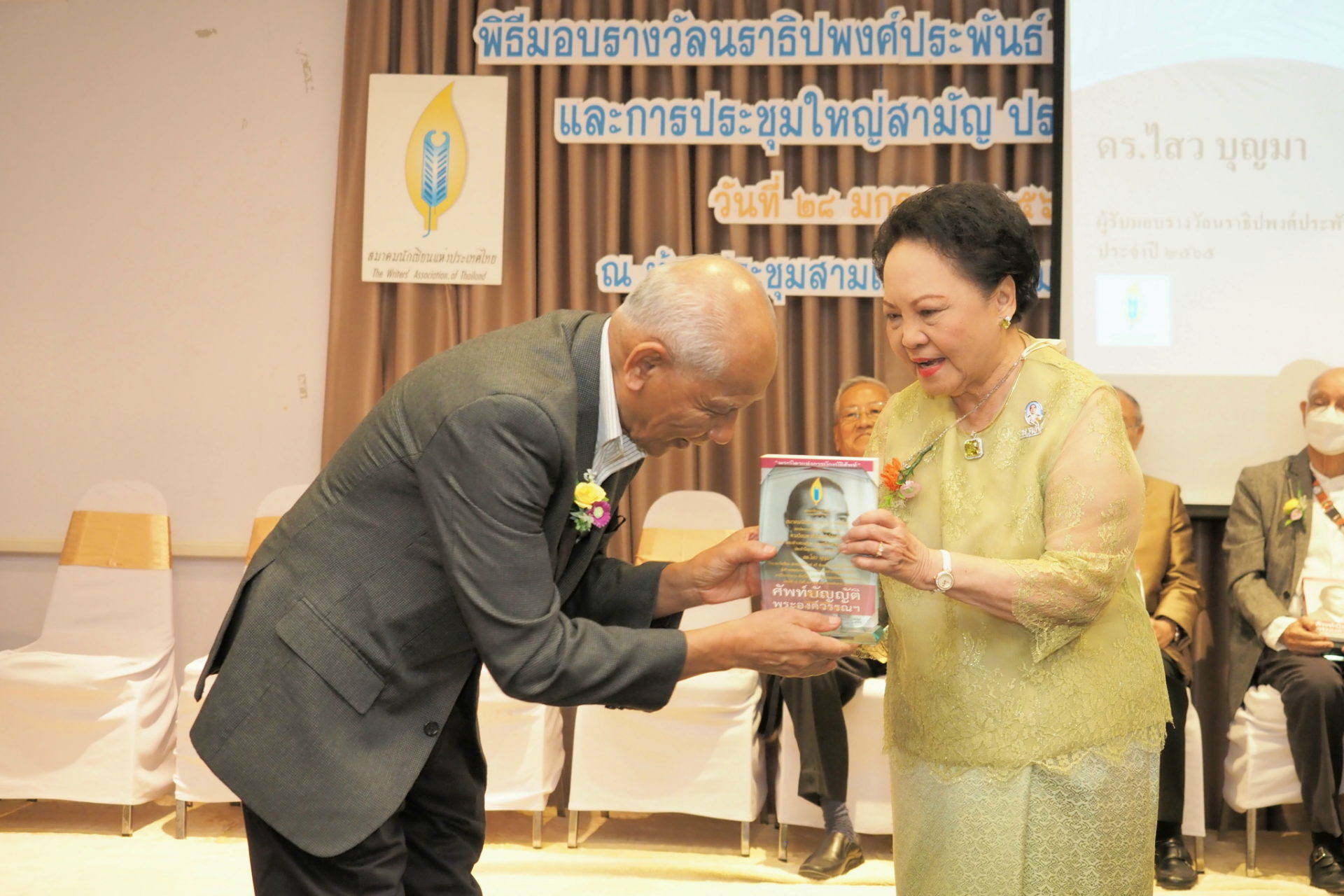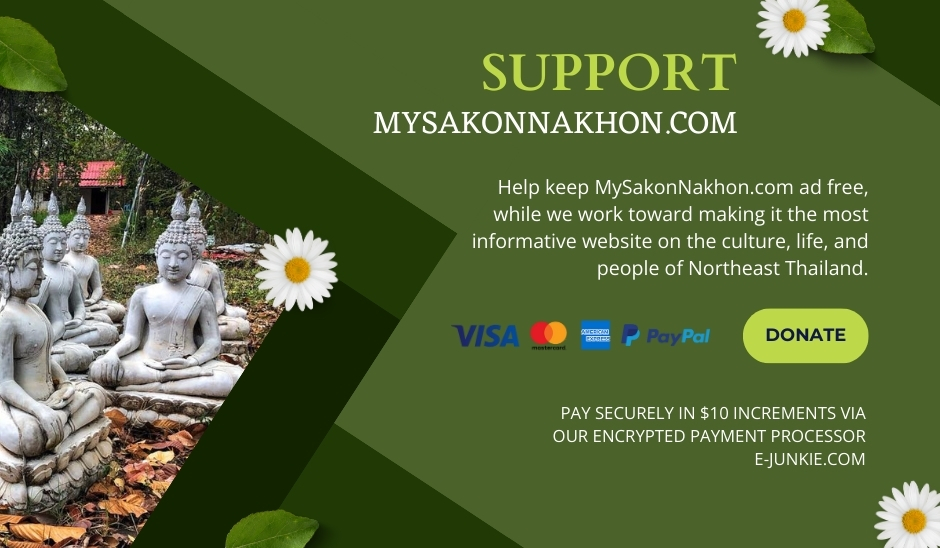
Respect in Thai Culture & Language

Respect is an integral part of Thai culture. It is deeply entwined with how the people of Thailand conduct themselves in their personal, professional, and public lives. Respect also is related to other aspects of Thai culture, such as saving face, being “greng jai,” and performing the wai greeting.
Thailand remains a very hierarchical society. Thai children become aware of this from a young age, as they are taught older siblings, cousins, and acquaintances are to be referred to as “phee” and younger people as “nawng” — using the word alone by itself, or by placing it before the other person’s name, as in “Phee Daeng” or “Nawng Lek”.
As they grow older, Thais then become accustomed to other hierarchies of status and respect involving teachers, government officials, big business owners, etc. The greater one’s wealth, age, social status, and/or family lineage, the greater the respect that is expected to be shown to that person.
As one can imagine, there is both good and bad aspects of Thailand’s culture of respect. On the one hand, it contributes in some ways to social harmony and orderliness — compared to Western societies, where many lament the decay of “respect,” especially towards the aged. The old adage “respect your elders” has long gone by the wayside in America and Britain.
On the other hand, respect that is compelled by a hierarchy of age or social status obviously can be abused. In the West we now say “respect is to be earned not given”. Slowly, with each succeeding generation, more Thais are adopting this attitude as well — especially when “poo-yais” (important people) are caught on video behaving badly, demanding respect in situations where no respect should be given them.
Thai politicians also often use “respect” as a shield from criticism.
However, if Thailand were to toss out all traditional attitudes towards “respect” and adopt a more Western attitude, it could backfire badly, if not worse than it has in the West. Thailand could change from the Land of Smiles and polite deference to an unruly society with no valued norms — one where respect is lost entirely due to growing selfishness, egotism, and unrealistic expectations as to what actually must be done to earn someone’s respect.
As taught in Thai Buddhist philosophy, the secret to life is in “the middle way,” and that applies to the culture of respect too.

Respect for Foreigners in Thailand
There is a common misconception that it doesn’t matter how long a foreigner lives in Thailand, they’ll never be afforded the same respect that Thais give other Thais. This is completely untrue. Yes, there are some Thais who dislike all “farangs” (just as there are people in every country who dislike certain foreigners). But there are also many Thais who like and love people from different countries.
Just look at the adoration shown South Korean artists and celebrities, and the high respect shown Japanese business leaders. This adoration isn’t due to the South Korean stars and Japanese leaders being Asian, but is related to their talent, to what they do and say. Farangs in Thailand unfortunately have a long track record of bad behavior and offensive talk.
Farangs therefore must earn the respect of Thais, rather than expect it to be given. Then, once that respect has been earned to a degree (among enough Thai people), they’ll begin to see automatic respect granted to them, just as it is with Thais.
How a Foreigner Earns Respect in Thailand
The key to gaining respect in Thailand as a foreigner is to assimilate into Thai culture. This is what Westerners expect foreigners to do when they live in their countries, but this all too often doesn’t occur with expats in Thailand due to a mistaken belief in their own superiority.
To assimilate into Thai culture and rise in its hierarchical society involves:
1. Dressing appropriately at the workplace and when out in public (such as when shopping or at a restaurant).
2. Taking care not to make another person lose face, especially someone older than you or higher up in the workplace.
3. Understanding how to be greng jai, and not put someone else out by asking for an unnecessary favor.
4. Showing respect to elders at home and in the workplace.
5. Always offering a wai greeting in the right way at the right time.
6. Never being argumentative, and never raising your voice to someone.
7. Adopting the Thai smile even in difficult circumstances. Avoid seriousness.
8. Being on the lookout for when you can be helpful. Be helpful with no expectation of anything in return.
9. Learning the basics of the Thai language. You don’t need to become fluent. But you should have a basic skills in speaking and reading Thai.
10. Learn the basics of Buddhism and visiting Thai temples, regardless of your own religion or lack thereof.

How to Say Respect in the Thai Language
There are two common ways to say respect in the Thai language: Khao-rop (เคารพ) and Nap-theu (นับถือ). The first word is a catch-all term for respect in Thai that can be used in most situations when you want to say respect. The latter refers to a deeper level of respect (similar to admiration), as is shown to revered teachers and monks, wise elders, workplace mentors, etc.
You might hear the Thai word “khao-róp” in a sentence like: Mâi khoie khao-róp phŏm (ไม่เคยเคารพผม), which means “You never respect me”. Meanwhile the word “nap-thĕu” may be heard in a sentence like: Chăn náp-thĕu khun jing jing (ฉันนับถือคุณจริงๆ), which means “I really respect/admire you.”
There is another word for respect in the Thai language, which is connected with a simultaneous feeling of humility: Nâwp-náwm (นอบน้อม). However, you are less likely to hear this word spoken compared to “khao-róp” and “nap-thĕu”.
- The Royal Ploughing Ceremony in Thailand – A History - May 8, 2024
- Dying Well the Buddhist Way in Thailand - May 7, 2024
- Comforting Words for the Brokenhearted in Thailand - May 6, 2024




